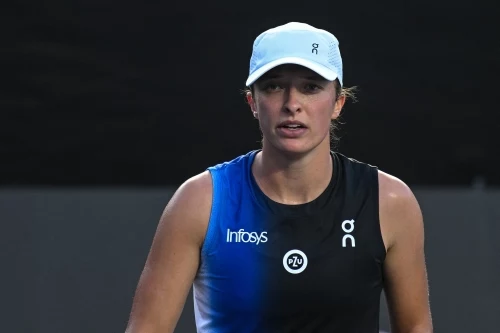Dariusz Nowicki, sports psychologist: – No, there was practically no response when it comes to direct contact with me. I only received one message on the social media messenger from one of the fans, who pointed out that finally someone was speaking out about what awaits overworked athletes and how serious the consequences are. He added that it was a pity that so little was said and written about it.
Were you surprised that you received so few reactions?
– Yes. I won’t hide the fact that it’s a surprise. Because it’s an increasingly serious problem. We talk about depression more and more often, we talk and write more and more often about what happens mainly among children and young people, as a group most exposed to the influence of various factors related to chronic stress. A lot is also starting to be said about athletes, who speak about it themselves, for example the cases of Marek Plawga or Aneta Szczepańska, including depressive states and the most dramatic steps. However, in reality, little is being done at the level of monitoring regenerative factors, which could certainly minimize this problem among athletes.
I understand that you stand by everything you said in that interview?
– Absolutely, I fully support that. Since then, Iga has had two defeats, which have caused many different negative comments, most often under the slogan: “fire your co-workers because it’s their fault”, but there are very few voices saying that this is probably the result of overload. All of those that Iga had to endure not only in the context of being at the top of the world ranking, which is extremely demanding physically and mentally, because you have to be in the tournaments all the time and stay in shape. But above all in the context of the fact that the Paris Olympics were, in my opinion, the strongest stress factor that Iga has encountered in recent years. And maybe even comparable to what she had to experience at the beginning of her domination on the ranking list.
Iga’s failures are happening more and more often, and no one is addressing the issue of chronic fatigue from that article.”
– Yes, that’s what I thought. Iga took a short break after the games, canceling her first start, but in my opinion it was too short a break. With this type of load, as I see it through my experience in the context of Olympic sports, or many years of working with professional golfers, after such heavy loads as during the games, a sporting event more demanding than even starts in the Grand Slams, the ordered break should last at least three weeks. Or even up to a month.
You emphasized the fact how much the Olympic Games “weigh”. But let’s also add how great their essence was for Iga herself.
– For Iga herself, it was stress, one might say, of a double kind. On the one hand, typical for an athlete who is ambitious, always and everywhere wants to confirm their high class and wants to reach for the greatest laurels, and such an absolute is the Olympic laurel. And on the other hand, there was what Iga herself signaled in some interviews, that she wanted to win a medal, as it were, for her father. So, please see how strong emotions this challenge aroused in her.










